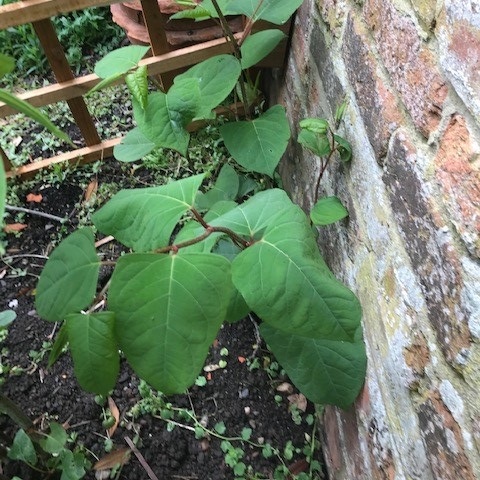
If you've ever come across this plant on your property, it's likely that your heart skipped a beat. Japanese knotweed is painted as a super-human, building-destroying monster that will cause chaos and destruction wherever it grows. But is that really the case?
A lot of the articles you read online about Japanese knotweed has been designed to scare you. While it is true that you should take immediate action if you find Japanese knotweed in your garden, it's not something that you should lose sleep over. In this blog, we're going to address some of the most common myths about Japanese knotweed so you can separate fact from fiction.
It is illegal to have Japanese knotweed on your property
Not true. Under the Wildlife and Countryside Act 1981 section 114 (2) (WCA 1981) Japanese knotweed is classed as a controlled plant. That means there are certain rules and regulations that you need to abide by when it comes to having Japanese knotweed on your property. If you notice Japanese knotweed on your property, don't worry you're not breaking the law. However, if you allow the plant to spread from your property onto neighbouring properties then that's when it becomes a legal issue. Your neighbours can report you if you do not take appropriate action to stop the spread of the invasive weed. That's why we always recommend seeking professional help as soon as possible.
Japanese knotweed is poisonous
Not true. Japanese knotweed is not poisonous and is harmless when touched, in fact, it's been used medicinally and used in food and drinks for decades. However, caution must be taken when in close proximity to avoid accidentally allowing the invasion to spread. The tiniest fragments of Japanese knotweed on your shoes or clothing can be enough to start a new infestation in a different location.
Japanese knotweed can grow up to 10cm per day
True. During the summer months when Japanese knotweed is in its fast-growing period, it can grow up to 10cm per day. This means it can spread from one property to another in only a few weeks, so be wary if you think you think you've spotted it in the garden. During the colder, winter months, Japanese knotweed actually lays dormant under the soil and doesn't grow at all, so it can be a bit of a surprise when it rears its head later in the year.
Japanese knotweed can damage your property
True. Japanese knotweed can damage walls, driveways and foundations, but what it can't do is grow through concrete. The way that Japanese knotweed causes damage is by exploiting existing cracks in our homes and gardens. It forces its bamboo-like shoots up through the cracks which can cause the cracks to become bigger. Over time, as the infestation continues to spread, this can become widespread damage that's not easy to fix.
Read More: Can Japanese Knotweed Damage Foundations?
Japanese knotweed can stop you from buying a house
True. Mortgage lenders are always very hesitant about providing a loan on a property with Japanese knotweed because it can cause structural damage that will de-value the house. While you might think you can tackle the knotweed yourself, most lenders will only accept a professional Japanese knotweed treatment plan.
READ MORE: Can You Get a Mortgage on a Property with Japanese Knotweed?
So there you have it. We hope we've cleared up some of your concerns and questions by debunking these Japanese knotweed myths. If you do have any other questions about Japanese knotweed, or if you'd like to contact us to arrange a Japanese knotweed survey - get in touch!
